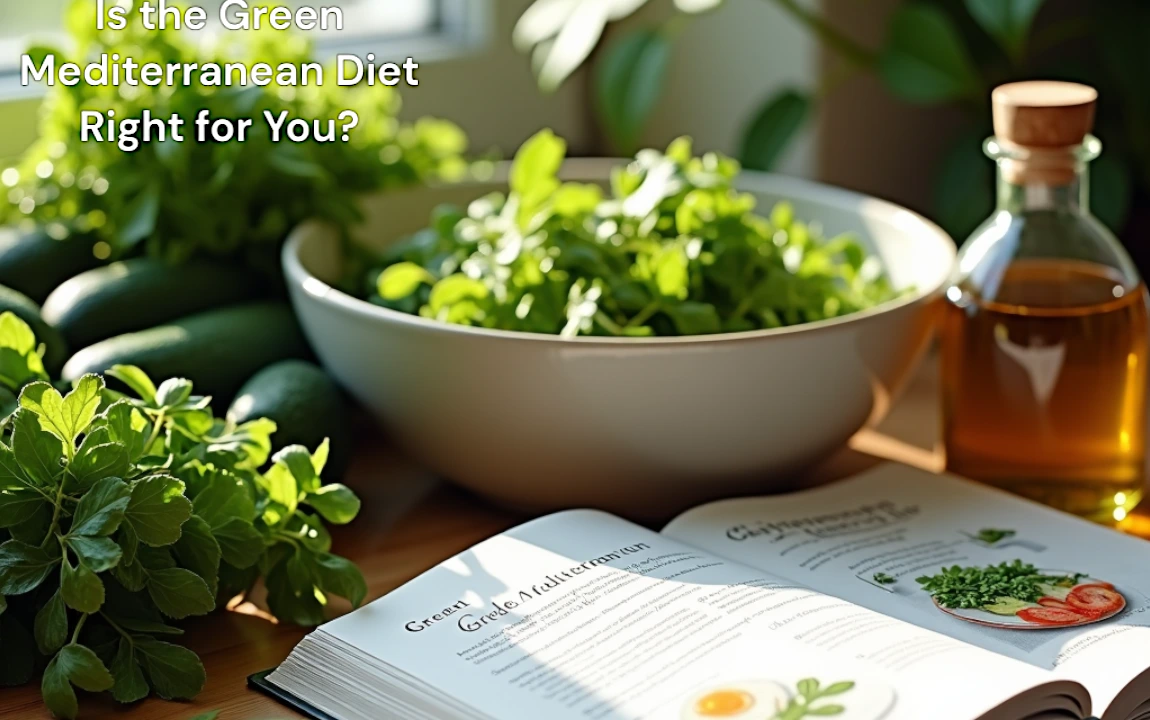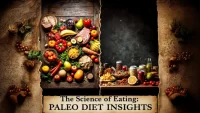The Green Mediterranean Diet has been gaining popularity as a healthier and more sustainable variation of the traditional Mediterranean Diet. This diet focuses on plant-based foods, healthy fats, and lean proteins, making it an attractive option for those looking to improve their health and well-being. But is the Green Mediterranean Diet right for you? In this comprehensive guide, we will explore the ins and outs of this diet, its benefits, potential drawbacks, and how you can get started. Let’s dive in and find out if this diet is the right fit for you!
What is the Green Mediterranean Diet?

The Green Mediterranean Diet is a variation of the traditional Mediterranean Diet, emphasizing plant-based foods while reducing the intake of animal products. It focuses on incorporating more green vegetables, legumes, whole grains, nuts, and seeds into your meals. The diet also includes healthy fats from sources like olive oil and avocados, as well as lean proteins such as fish and poultry.
Key Components of the Green Mediterranean Diet
- Plant-Based Foods: A significant portion of your meals should consist of fruits, vegetables, legumes, nuts, and seeds.
- Healthy Fats: Olive oil, avocados, and nuts are excellent sources of healthy fats.
- Whole Grains: Incorporate whole grains like quinoa, brown rice, and whole wheat pasta.
- Lean Proteins: Focus on fish, poultry, and plant-based protein sources like tofu and tempeh.
- Limited Red Meat: Reduce the consumption of red meat and processed meats.
- Dairy in Moderation: Opt for low-fat or plant-based dairy alternatives.
Benefits of the Green Mediterranean Diet
Heart Health
One of the most well-known benefits of the Green Mediterranean Diet is its positive impact on heart health. The diet’s emphasis on healthy fats, whole grains, and plant-based foods can help reduce the risk of heart disease. Studies have shown that following this diet can lower LDL cholesterol levels, reduce blood pressure, and improve overall cardiovascular health.
Weight Management
The Green Mediterranean Diet can be an effective tool for weight management. The diet’s focus on whole, nutrient-dense foods helps promote satiety and reduce calorie intake. Additionally, the inclusion of healthy fats and lean proteins can help maintain muscle mass and support a healthy metabolism.
Anti-Inflammatory Properties
The Green Mediterranean Diet is rich in anti-inflammatory foods, such as fruits, vegetables, and healthy fats. Chronic inflammation is linked to numerous health conditions, including heart disease, diabetes, and certain cancers. By following this diet, you can help reduce inflammation in your body and lower the risk of these diseases.
Improved Gut Health
The diet’s emphasis on fiber-rich foods, such as fruits, vegetables, and whole grains, can promote a healthy gut microbiome. A diverse and balanced gut microbiome is essential for overall health, as it plays a crucial role in digestion, immune function, and even mental health.
Sustainability
The Green Mediterranean Diet is not only beneficial for your health but also for the environment. By reducing the consumption of animal products and focusing on plant-based foods, you can help lower your carbon footprint and promote more sustainable food production practices.
Potential Drawbacks of the Green Mediterranean Diet
Nutrient Deficiencies
While the Green Mediterranean Diet is rich in many essential nutrients, it may be lacking in certain vitamins and minerals typically found in animal products, such as vitamin B12, iron, and calcium. It’s essential to monitor your nutrient intake and consider supplements if necessary to avoid deficiencies.
Cost and Accessibility
Some people may find the cost of fresh produce, whole grains, and healthy fats to be higher than processed foods. Additionally, access to these foods may be limited in certain areas, making it challenging to follow the diet consistently.
Adaptation Period
Switching to a new diet can be challenging, especially if you’re used to consuming a lot of processed foods or animal products. It may take some time to adjust to the Green Mediterranean Diet and develop new eating habits.
How to Get Started with the Green Mediterranean Diet
Stock Your Kitchen
Start by stocking your kitchen with a variety of plant-based foods, healthy fats, and lean proteins. Keep your pantry filled with whole grains, legumes, nuts, and seeds, and ensure you have a good selection of fresh fruits and vegetables on hand.
Plan Your Meals
Meal planning is essential for success on the Green Mediterranean Diet. Plan your meals and snacks in advance to ensure you have all the necessary ingredients and avoid the temptation of unhealthy options. Consider batch cooking and preparing meals ahead of time to make sticking to the diet easier.
Experiment with Recipes
Explore new recipes and experiment with different flavors and ingredients. There are countless delicious and nutritious Green Mediterranean Diet recipes available online, so take advantage of these resources to keep your meals exciting and satisfying.
Listen to Your Body
Pay attention to how your body responds to the Green Mediterranean Diet. Everyone’s nutritional needs are different, so it’s essential to listen to your body and make adjustments as needed. If you’re experiencing any adverse effects, consult with a healthcare professional or registered dietitian.
Stay Consistent
Consistency is key to seeing the benefits of the Green Mediterranean Diet. While it’s okay to indulge occasionally, try to stick to the diet as closely as possible to achieve the best results for your health and well-being.
Sample Green Mediterranean Diet Meal Plan
Breakfast
- Greek yogurt with fresh berries, chia seeds, and a drizzle of honey
- Whole grain toast with avocado and a poached egg
Lunch
- Quinoa salad with chickpeas, cucumber, tomatoes, olives, and feta cheese, dressed with olive oil and lemon juice
- Lentil soup with a side of mixed greens and a whole-grain roll
Dinner
- Grilled salmon with a side of roasted vegetables and a quinoa pilaf
- Stuffed bell peppers with brown rice, black beans, corn, and topped with a sprinkle of cheese
Snacks
- Fresh fruit with a handful of nuts
- Hummus with carrot and cucumber sticks
Conclusion
The Green Mediterranean Diet offers numerous health benefits, including improved heart health, weight management, reduced inflammation, and better gut health. While there may be some challenges, such as potential nutrient deficiencies and cost, the advantages often outweigh the drawbacks. By stocking your kitchen with healthy foods, planning your meals, and staying consistent, you can successfully follow the Green Mediterranean Diet and enjoy its many benefits. Ultimately, it’s essential to listen to your body and make adjustments as needed to ensure this diet is the right fit for you.
FAQs
Can I follow the Green Mediterranean Diet if I’m vegetarian or vegan?
Yes, the Green Mediterranean Diet can be adapted for vegetarians and vegans by focusing on plant-based protein sources, such as legumes, tofu, and tempeh. Be sure to monitor your nutrient intake to avoid deficiencies.
How much olive oil should I consume on the Green Mediterranean Diet?
Olive oil is a key component of the Green Mediterranean Diet. Aim to use it as your primary cooking oil and include it in dressings and marinades. However, be mindful of portion sizes, as olive oil is calorie-dense.
Can I drink alcohol on the Green Mediterranean Diet?
Moderate alcohol consumption is allowed on the Green Mediterranean Diet, typically in the form of red wine. However, it’s essential to limit your intake to one glass per day for women and up to two glasses per day for men, as excessive alcohol consumption can negate the health benefits of the diet.
Are there specific foods I should avoid on the Green Mediterranean Diet?
Yes, it’s best to avoid processed foods, sugary snacks, refined grains, and excessive red meat. Focus on whole, unprocessed foods and limit your intake of foods high in saturated fats, added sugars, and sodium.
How can I ensure I’m getting enough protein on the Green Mediterranean Diet?
Include a variety of protein sources in your diet, such as legumes, nuts, seeds, fish, poultry, and plant-based proteins like tofu and tempeh. Combining different protein sources throughout the day can help ensure you’re meeting your protein needs.
The Power of the Green Mediterranean Diet: Key Takeaways
The Green Mediterranean Diet is a plant-focused approach that combines the heart-healthy benefits of the traditional Mediterranean Diet with the added emphasis on green vegetables and plant-based foods. It offers numerous health benefits, including improved heart health, weight management, reduced inflammation, and enhanced gut health. By following the diet’s principles and making mindful food choices, you can improve your overall well-being while supporting a more sustainable and environmentally friendly lifestyle.
Remember, the key to success with the Green Mediterranean Diet is consistency and listening to your body’s needs. With the right mindset and commitment, you can make lasting changes that contribute to better health and a higher quality of life.











